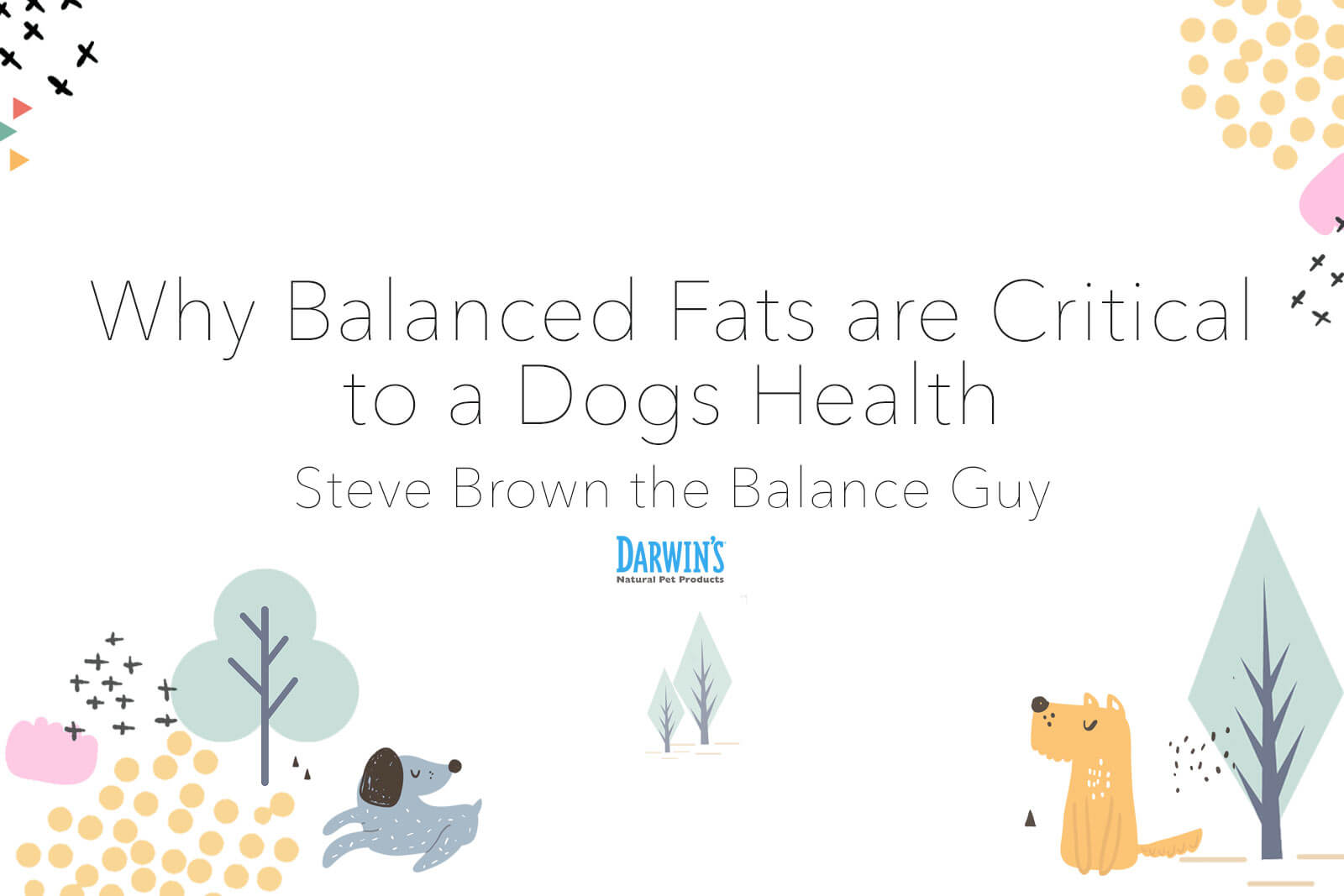Why Balanced Fats Are Critical to a Dog’s Health: Part 2
3/4/15

The balance of fats that a dog consumes has a profound influence on the dog’s cell membranes, those semi-permeable layers that allow cells to receive nutrients and eliminate wastes. Because every cell in the body has a cell membrane made mostly of omega-6 and omega-3 fatty acids, consuming the proper amounts of omega-6s and -3s has the potential to affect every organ system in the body.
A good dietary omega-6/-3 balance makes the cell membranes fluid, permeable, flexible and healthy. On the other hand, too much omega-6 (from chicken fat, corn oil, safflower oil, soy oil, canola oil, etc), makes the cell membranes, including those in the brain, brittle, sluggish and inefficient, so that the dog thinks and moves a little slower. Likewise, too much of an omega-3 fatty acid called DHA in the diet can make the cell membranes prone to oxidation, which leads to premature aging.
The fats that a dog consumes affect every cell in her body, especially the cells in her brain and eyes. The consumption of balanced fats is especially important to fetuses and puppies; for example, consumption of proper fats (and the avoidance of rancid fats) when young can reduce the incidence of eye problems when dogs are old.
Stay tuned to the blog for part three of this series: 4 Easy Steps to Improve Your Dog’s Health – Feeding the Right Balance of Fats



